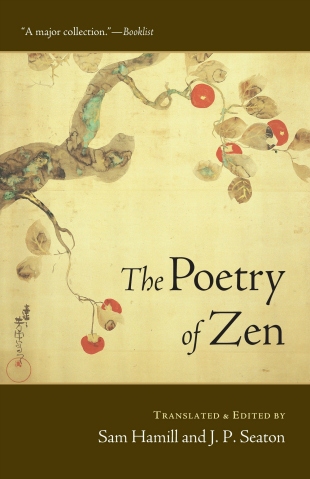Zen practice with its rigorous emphasis on the present moment lends itself well to the creation of poetry that is short and sweet. In this Shambhala Library original, Sam Hamill and J. P. Seaton have put together an anthology of Chinese and Japanese poetry from the beginning of Zen through the twentieth century. Hamill is the founding editor of Copper Canyon Press, and Seaton the leading expert on Chinese poetry in America.
The tenth century Zen master Penhsien reminded his followers not to rely too much on sutras or koan study. Instead, his advice was: "If you really want to get to the truth of Zen, get it while walking, while standing, while sleeping or sitting . . . while working." Most of the poets in this superb collection have heeded that advice. They pay attention to the wonders of the natural world, the signs of the precariousness of life in all living beings, the little changes that comprise each day, and the small details that are often missed by those who are less observant. Seaton's introduction to the Chinese poems and Hamill's to the Japanese poems provide access to these poets' unique perspectives.
For Han Shan, an eighth century Chinese poet, mysteries are to be found all around us:
"Jade green pool spring water's clear.
The spirit of itself brings dark mysteries to light.
Meditate on emptiness: it’s all the more quiet."
Notice the little detail that makes a moment of beauty in Liu Ch'ang-ch'ing's poem "Bidding Farewell to a Monk"
"From Bamboo Forest temple,
I faintly hear the evening bell.
Twilight touches the brim of your hat
as you turn and enter the dark blue hills."
There is surprising tenderness in this poem by the monk Kengei:
"True, I may appear
unkempt like a rotting tree,
jetsam or flotsam,
but on the right occasion
this old heart can blossom."
And, of course, no collection of Zen poetry would be complete without the playfulness of Buson:
"With no underrobes,
bare butt suddenly exposed —
a gust of spring wind."
